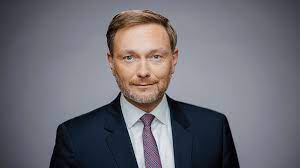By dpa correspondents
Brussels (dpa) – Germany’s finance minister called record inflation “an impoverishment programme” for the public and “a threat to economic development” at a meeting of euro area finance ministers on Monday.
“Fighting inflation must be the big political priority at the European level,” Lindner said in Brussels, calling the recent hike in consumer prices “the people’s biggest concern.”
Euro countries are facing record inflation, reaching on average 7.4% in April. Estonia and Lithuania, the hardest hit eurozone countries, have seen their year-on-year price comparisons climb to 19.1% and 16.6% respectively.
The surges in consumer prices are driven by rising energy prices and supply chain issues exacerbated by Russia’s war in Ukraine.
The European Commission is to present its revised economic forecast at Monday’s meeting.
Last week the commission adjusted its 2022 projection for economic growth in the European Union and the euro area to 2.7%, down from 4.0%.
Lindner urged countries in the eurozone “to do everything possible to return to stability as quickly as possible,” suggesting reducing deficits and debt-based public spending to mitigate inflation.
The President of the European Central Bank (ECB), Christine Lagarde, indicated in a blog post on Monday that borrowing money could become more expensive in the coming months.
“Based on the current outlook, we are likely to be in a position to exit negative interest rates by the end of the third quarter,” Lagarde wrote giving her clearest indication yet that the ECB is heading for its first interest rate hike in many years.
Currently, the central bank’s key deposit rate is at minus 0.5%. The main refinancing rate is at zero.
Further rate hikes would depend on the inflation outlook, Lagarde said, cautioning that “the pace and overall scale of the adjustment cannot be determined” in advance.
At Monday’s Brussels meeting, euro finance ministers will also discuss how to proceed with the banking union, the European Union’s response to the 2008 financial crisis, whose implementation has stalled in recent years.
Ministers will also review applications for the position of the head of the European Stability Mechanism (ESM), the body in charge of bailouts for euro countries, as its current managing director Klaus Regling is retiring in October.

Be the first to comment on "Inflation troubles euro finance ministers as ECB signals rates hike"